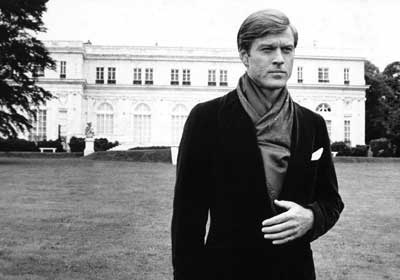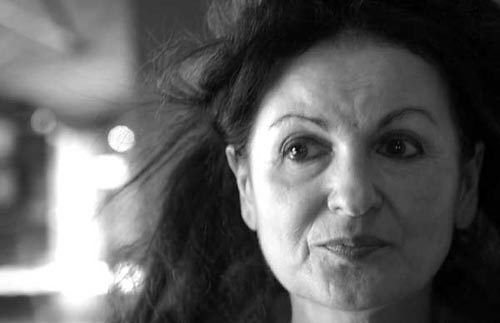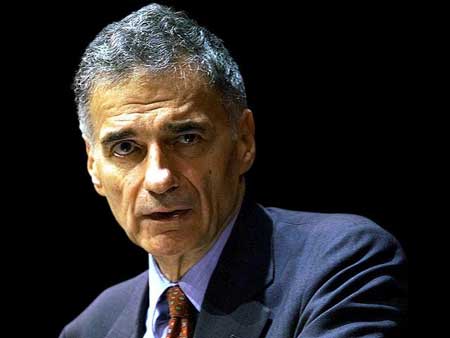News

The American Scholar has a rather interesting piece about Francis Scott Fitzgerald’s constant struggles with money. I am not entirely convinced by the mathematical conversions of Fitzgerald’s income into today’s dollars, but the article provides some good insight into how the novelist and short-story writer handled in real life something that constantly occupied him in his fiction:
In “How to Live on $36,000 a Year,” Fitzgerald wrote that in 1920, three months after marrying Zelda, he ran out of money. “This particular crisis passed” when he discovered the next morning that publishers sometimes advance royalties. As he put it, “So the only lesson I learned from it was that my money usually turns up somewhere in time of need, and that at the worst you can always borrow—a lesson that would make Benjamin Franklin turn over in his grave.”
You can read the full article here.
Photo of Robert Redford in the film adaptation of The Great Gatsby: Forbes.
Who says Twitter is useless? Although I find the ceaseless posting somewhat overwhelming, I have also come across some really interesting material there. Yesterday, for instance, I discovered (via Maud Newton’s feed) this incredible 1963 footage of James Baldwin visiting San Francisco. Because the sound quality is not perfect, the film has been subtitled (with a few typos). You can watch the clip here, on the website of San Francisco Bay Area Television Archive.

In The Locust and the Bird, the Lebanese novelist Hanan al-Shaykh tells her mother’s life story, in her mother’s voice. Kamila, Hanan’s mother, is born to a destitute family in southern Lebanon in the late 1920s. They move to Beirut to live with an older half-sister, Manifa, though they are expected to earn their keep by selling wares door-to-door. In Beirut, Kamila discovers the world of music, fashion, and Egyptian movies. She also meets the love of her life, a cultivated man named Mohammed. When Manifa dies unexpectedly, the illiterate Kamila is married off, at the age of thirteen, to Manifa’s widower. They have two children (one of whom is the novelist) before Kamila manages to be reunited with Mohammed, whom she marries and to whom she bears several children.
Translated by Roger Allen, The Locust and the Bird is in some ways a tragic story, but it’s also an inspiring story, in which a woman manages to survive by her wits alone. Kamila is constantly trying to figure out ways to outsmart the men in her family. This is because, she tells us, “most of my friends were scared of every man in their family — even distant relatives — and this included the rich and the grand, like my glamorous cousin Mira.” Although Kamila’s struggles are occasionally rendered with minimal empathy and psychological depth, the story is engrossing. Reading this book, one comes to understand why Al-Shaykh has written so many novels with feisty heroines fighting back against male domination.
Photo credit: Al Ahram.
When I was in London last summer, I had dinner with the novelist Hisham Matar, who, knowing of my obsession with Coetzee, had brought a copy of Summertime for me. (Though released in the UK in August, the book won’t be out in the U.S. until December.) I started reading the book that same night. Like Boyhood and Youth, Summertime is a novel-cum-memoir. This time, Coetzee appears to us, thanks to the work of an English biographer, as a man in his mid-thirties, who is living with his father, working on a novel, and struggling to find a position as a university professor.
Here is a passage from the first chapter, which I found interesting because of what it says (or, more accurately, what it says to me) about the young Coetzee:
The house across the street has new owners, a couple of more or less his own age with young children and a BMW. He pays no attention to them until one day there is a knock at the door. “Hello, I’m David Truscott, your new neighbor. I’ve locked myself out. Could I use your telephone?” And then, as an afterthought: “Don’t I know you?”
Recognition dawns. They do indeed know each other. In 1952 David Truscott and he were in the same class, Standard Six, at St. Joseph’s College. He and David Truscott might have progressed side by side through the rest of high school but for the fact that David failed Standard Six and had to be kept behind. It was not hard to see why he failed: in Standard Six came algebra, and about algebra David could not grasp the first thing, the first thing being that x, y, and z were there to liberate one from the tedium of arithmetic. In Latin too, David never quite got the hang of things—of the subjunctive, for example. Even at so early an age it seemed to him clear that David would be better off out of school, away from Latin and algebra, in the real world, counting banknotes in a bank or selling shoes.
But despite being regularly flogged for not grasping things—floggings that he accepted philosophically, though now and again his glasses would cloud with tears—David Truscott persisted in his schooling, pushed no doubt from behind by his parents. Somehow or other he struggled through Standard Six and then Standard Seven and so on to Standard Ten; and now here he is, twenty years later, neat and bright and prosperous and, it emerges, so preoccupied with matters of business that when he set off for the office in the morning he forgot his house key and—since his wife has taken the children to a party—can’t get into the family home.
“And what is your line of business?” he inquires of David, more than curious.
“Marketing. I’m with the Woolworths Group. How about you?”
“Oh, I’m in between. I used to teach at a university in the United States, now I’m looking for a position here.”
“Well, we must get together. You must come over for a drink, exchange notes. Do you have children?”
“I am a child. I mean, I live with my father. My father is getting on in years. He needs looking after. But come in. The telephone is over there.”
So David Truscott, who did not understand x and y, is a flourishing marketer or marketeer, while he, who had no trouble understanding x and y and much else besides, is an unemployed intellectual. What does that suggest about the workings of the world? What it seems most obviously to suggest is that the path that leads through Latin and algebra is not the path to material success. But it may suggest much more: that understanding things is a waste of time; that if you want to succeed in the world and have a happy family and a nice home and a BMW you should not try to understand things but just add up the numbers or press the buttons or do whatever else it is that marketers are so richly rewarded for doing.
You can read the complete first chapter of Summertime at the New York Review of Books.

When I heard that Ralph Nader had written a book called Only the Super-Rich Can Save Us, I thought, based on its title, that it had to be some sort of satire. But, according to the publicity materials posted by Nader’s publisher, Seven Stories Press, the book is about a group of fabulously wealthy individuals who decide that it is time to make good on the promise of “liberty and justice for all.” Led by the billionaire Warren Buffet, they start working for the common good: workers’ unions, clean elections, human rights, and so on. So Only the Super-Rich Can Save Us is really a fantasy, but its sheer length (780 pages!) causes NPR’s Alan Cheuse to call it “an unconscionable attack on America’s trees.”
Perhaps anticipating the confusion, Nader has said that this book is not a novel. It is “a fictional vision that could become a new reality.” Me, I’m just curious how he plans on getting those super-rich to read his book.


